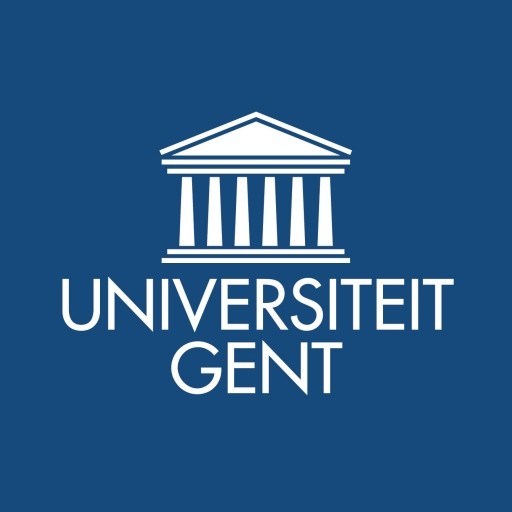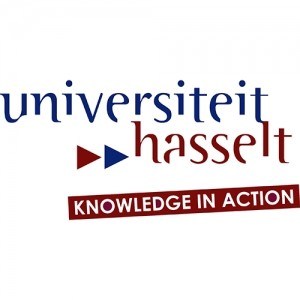Photos of university / #thefoundry_ugent
International Business Law at Ghent University is a comprehensive, multidisciplinary program designed to equip students with in-depth knowledge of the legal frameworks that underpin international commerce and business transactions. This program combines core legal principles with specialized courses focusing on international trade law, corporate law, dispute resolution, and legal aspects of global economic integration. Students will explore the legal environment of international business, including contracts, dispute settlement mechanisms, intellectual property rights, and regulatory compliance across different jurisdictions. The curriculum emphasizes practical skills such as legal analysis, negotiation, and drafting, preparing graduates for careers in international law firms, multinational corporations, governmental agencies, and international organizations. Courses are taught by experienced academics and practitioners, providing a blend of theoretical foundations and real-world applications.
Throughout the program, students will have the opportunity to participate in seminars, moot courts, and internships that enhance their understanding of the complexities of international business law. The program also fosters intercultural competence and multilingual skills, which are essential in the global legal market. Students are encouraged to engage in research projects and thesis work that address current challenges and trends in international business law, such as digital commerce, sustainable development, and human rights considerations within international trade agreements. Upon graduation, students will possess a solid understanding of international legal principles, exceptional analytical skills, and the ability to address legal issues faced by global business entities. This program prepares future legal professionals to operate effectively in an interconnected world, ensuring they are well-equipped to navigate the legal landscapes of international commerce and contribute positively to the development of fair, transparent, and efficient global markets.
General Courses (28 Credits)
- Advanced EU Internal Market Law (6 Credits)
- European Banking and Capital Market Law (4 Credits)
- European Company Law and Corporate Governance (4 Credits)
- International Commercial Arbitration (4 Credits)
- International Business Transactions (4 Credits)
- Seminar: Foreign Chair (3 Credits)
- Skills for Lawyers (3 Credits)
Elective Courses (17 Credits)
- European Law: The Basics (3 Credits)
- International and European Environmental Law (6 Credits)
- Advanced EU Competition Law (6 Credits)
- Advanced EU External Relations Law (6 Credits)
- Advanced EU Institutional Law (6 Credits)
- The Autonomous EU Legal Order (6 Credits)
- Contemporary Issues in International Business Law: Intellectual Property Law (3 Credits)
Hans De Wulf / Eric De Gryse - European Contract Law (4 Credits)
- EU Labour Law (4 Credits)
- European Media Law (4 Credits)
- EU Social Law and International Employment (4 Credits)
- EU Trade Policy (4 Credits)
- International Economic Law (4 Credits)
- Maritime Transport Law (4 Credits)
- EU Mergers and Acquisitions (4 Credits)
- Transport Insurance Law (4 Credits)
- Transport Law (4 Credits)
- European Private Law (ius commune) (4 Credits)
- Moot Court: International Commercial Arbitration (12 Credits)
- Moot Court: Public International Law (12 Credits)
Master Dissertation (15 Credits)
Requirements
- To have a law degree, i.e. the degree that in its country of origin makes one eligible to exercise the legal professions. Students in their final year of undergraduate studies may apply and may be conditionally admitted, subject to the successful completion of their degree.
- Exceptionally, after an examination of their curricula and in view of their acquired competences, candidates who do not have a law degree may also be admitted. In such an event, the admission may be made subject to limitations with respect to the courses to be followed.
- To present proof of sufficient English proficiency (Applicable only to all non-native English speakers. We require a minimum score of 560 for paper TOEFL, 95 for Internet based TOEFL or 6.5 for IELTS, or C1 score for ITACE (for Belgian applicants). However, there is a possibility to obtain an exemption for prospective candidates who have completed a study course of minimum one year (equal to 60 ECTS credits) at an English-speaking higher education institution (upon presentation of a respective document proving completion of such a programme).
- To have sufficient financial support, as indicated in the application form, either through personal financial means or via financial aid. Please note that the tuition fee for the LLM programmes is 5000 Euro.
- CV
- Motivation letter
- Transcript of records
- Enrollment fee of Ghent University for academic year 2016-2017 is 890 € for EER-students and students from OESO-DAC-list (developing countries), all other students pay an enrollment fee of 5330 €
The financing of the International Business Law master's program at Ghent University is primarily supported through a combination of tuition fees, government grants, and scholarships. The tuition fees for international students are set according to the university's fee structure, which varies depending on the student’s nationality and residence status. Belgian and European Union students benefit from relatively lower fees, subsidized by government funding, making higher education more accessible within the region. Non-EU students generally pay higher tuition fees, which help cover the cost of instruction, infrastructure, and university services. Ghent University offers a range of scholarships and financial aid options to assist both domestic and international students in funding their studies. These scholarships are awarded based on academic merit, need, or specific criteria related to the student’s country of origin. Some funding opportunities are provided by the Belgian government, European Union programs, or private foundations. Students are encouraged to explore these options early in their application process to secure adequate financial support. Additionally, students may consider external funding sources or part-time work opportunities available on or off campus, within the framework set by Belgian regulations. The university also provides guidance and counseling services to help students identify suitable financing options and navigate the application process for scholarships and grants. Overall, the financial structure of the program is designed to make it accessible for a diverse student body, promoting international education and academic excellence while ensuring sustainability of the university’s programs.
The Master's program in International Business Law at Ghent University offers students a comprehensive education in the legal aspects of international trade, commerce, and investment. Designed for students who aim to develop expertise in the regulatory framework governing international economic activities, the program covers a wide array of topics including international commercial contracts, dispute resolution, trade law, European Union law, and the legal implications of globalization. The program is structured to combine theoretical understanding with practical skills, preparing graduates for careers in law firms, international organizations, governmental agencies, or corporate legal departments.
Students will learn about the legal mechanisms that facilitate cross-border transactions, the resolution of international commercial disputes through arbitration and litigation, and the impact of EU regulations on international business practices. The curriculum emphasizes both the European and international legal dimensions, ensuring that students gain a balanced perspective on how legal systems interact within the global economy. Courses are often taught by experienced academics and practitioners active in the field, providing students with real-world insights and case studies.
The program encourages an interdisciplinary approach, integrating legal studies with economic and diplomatic perspectives to equip students with a holistic understanding of international business law. Practical skills are further developed through moot courts, internships, or collaborative projects with business and legal entities. The language of instruction is primarily English, attracting students from diverse national backgrounds and fostering an international learning environment.
Graduates of this program will be equipped with the legal knowledge and analytical skills needed to advise multinational companies, draft international contracts, and navigate complex legal issues in the global marketplace. The program also offers opportunities for specialization in areas such as maritime law, intellectual property, or human rights law, depending on the student’s interests. Ghent University’s strong connections with international legal institutions and firms provide students with networking opportunities and internships that enhance their career prospects.
Overall, the International Business Law Master’s at Ghent University stands out as a rigorous program designed to prepare the next generation of legal professionals and advisors in the rapidly evolving field of international commerce. The program's focus on practical application, combined with a solid theoretical foundation, ensures that graduates are well-placed to operate effectively in the dynamic international legal environment.



